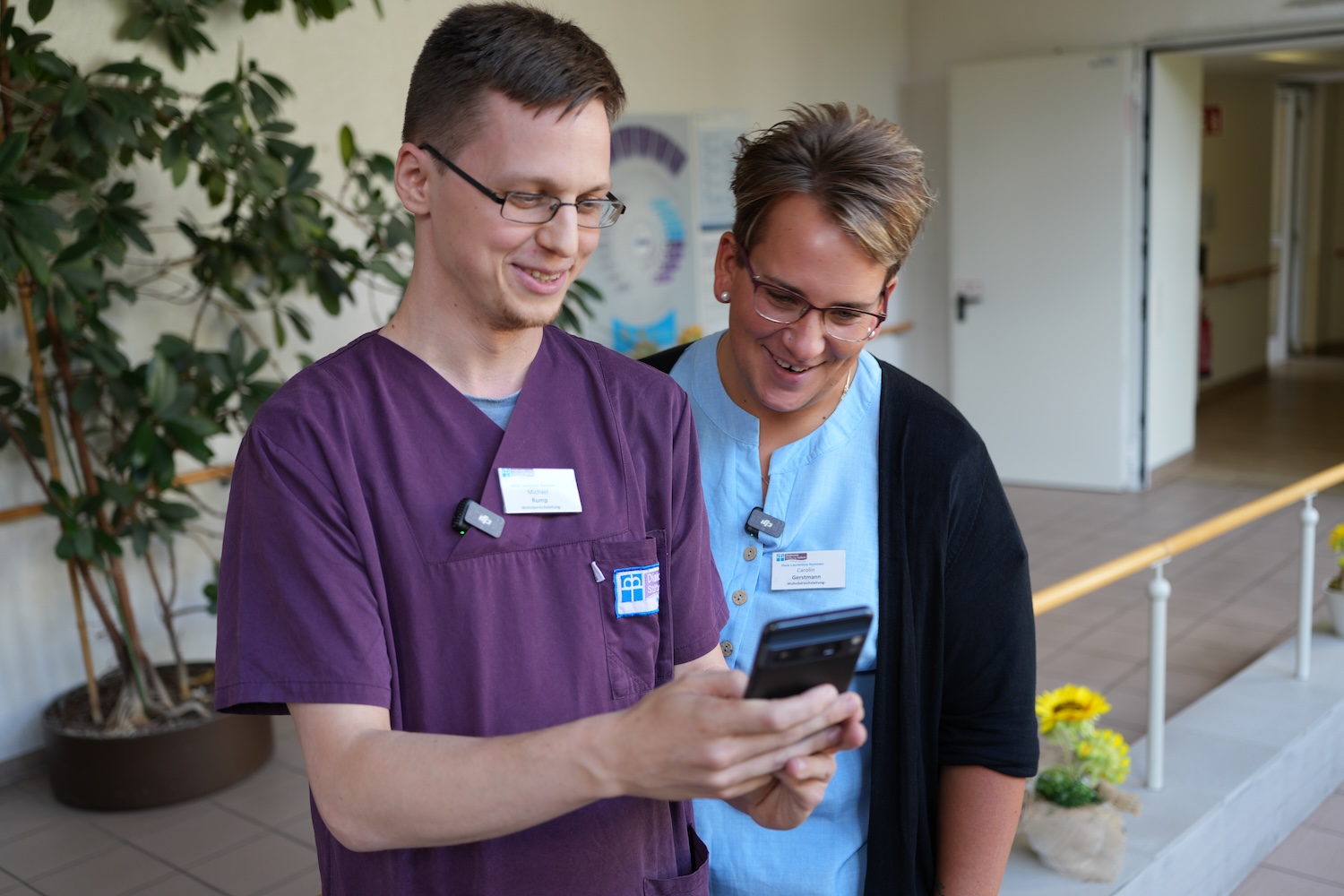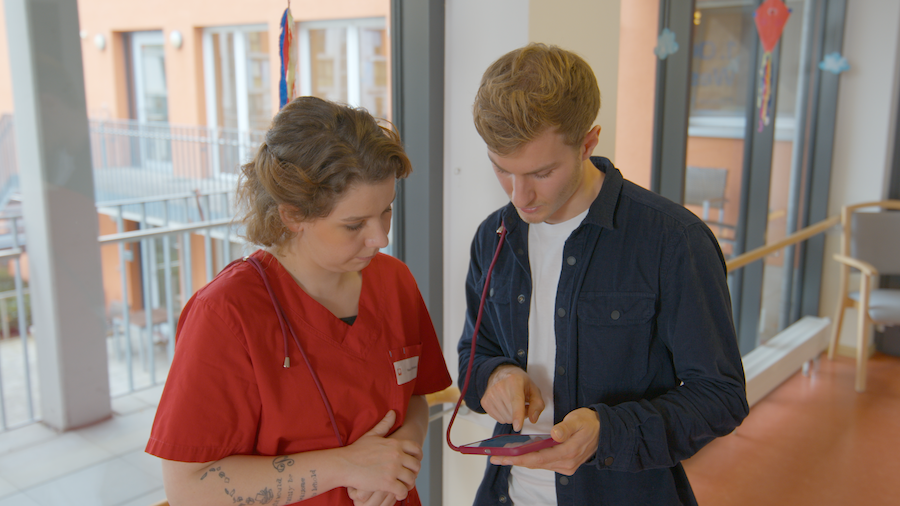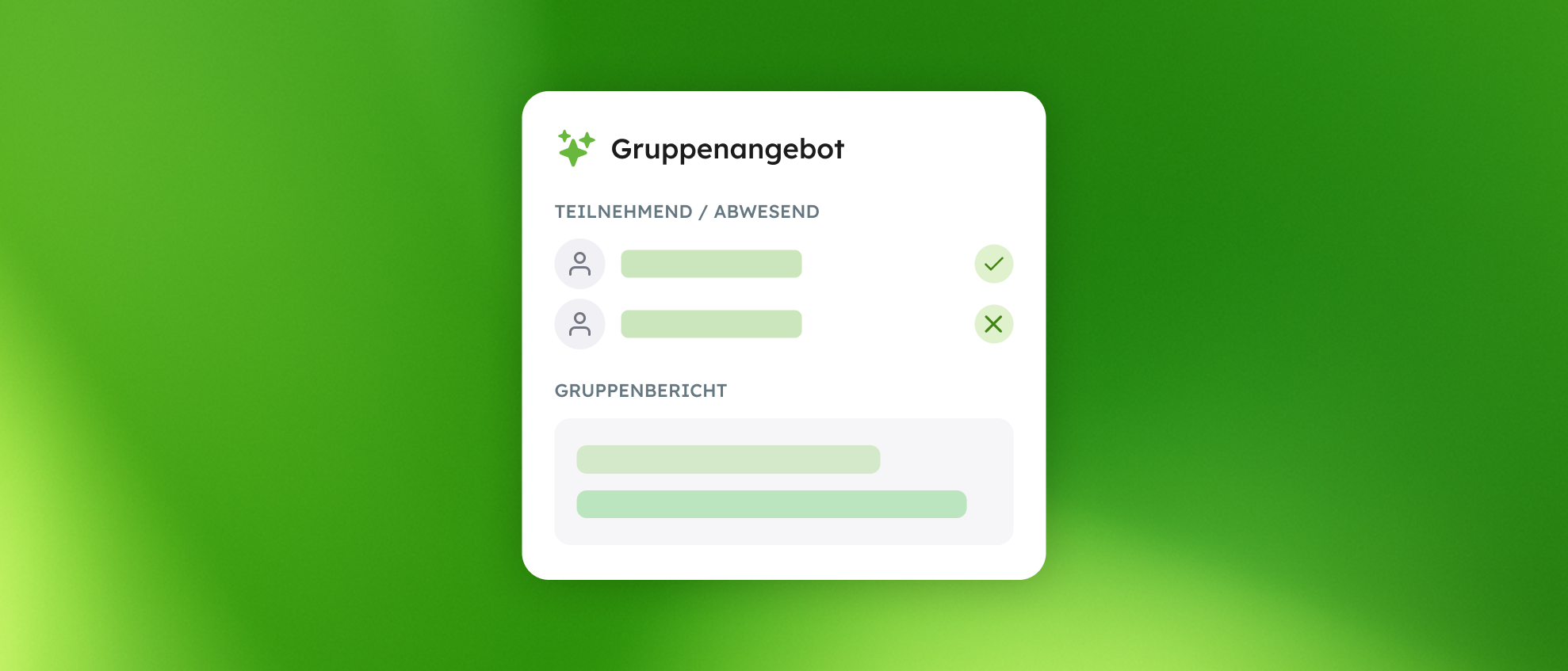Diakonie Stiftung Salem reports in CAREkonkret about the use of voize
The provider uses voize in both inpatient and outpatient care. For the first time, voize is also providing relief in a Lebenshilfe facility. In CAREkonkret, employees report on their experiences with the speech-based care documentation. By Christian Niemann

Heading
Heading
Heading
Lorem ipsum dolor sit amet, consectetur adipiscing elit. Suspendisse varius enim in eros elementum tristique. Duis cursus, mi quis viverra ornare, eros dolor interdum nulla, ut commodo diam libero vitae erat. Aenean faucibus nibh et justo cursus id rutrum lorem imperdiet. Nunc ut sem vitae risus tristique posuere.
Too much paperwork, too little time for people with care or support needs - it is often excessive administrative tasks that make the work of care and integration assistance staff more difficult. In order to relieve this burden, the Minden-based Diakonie Stiftung Salem has now introduced a new app in a pilot project that aims to drastically reduce the amount of documentation required using voice input. "voize" is the name of the app, which was launched by a Brandenburg start-up in 2020. When our grandfather was in a nursing home, we saw how much work the nursing staff had to do with documentation," says Managing Director and founder Marcel Schmidberger. "voize" has been on the market for three years and is already being used successfully in a number of care facilities across Germany.
The app allows nursing and care staff to record documentation directly on site, for example in the resident's room. However, "voize" has more to offer than just the dictation function of the smartphone. The application not only translates speech into writing, but also recognizes certain word sounds and can record the associated data separately: for example, if a person in need of care has their blood pressure measured, "voize" immediately recognizes the situation from the voice input and transfers the vital signs to a statistic.
In addition, the application has interfaces to the documentation program of the Diakonie Stiftung Salem. Entries are therefore transferred automatically. Nursing and care staff do not have to laboriously note down data on pieces of paper only to type it into the PC later. A short voice message is enough and all the data is immediately available.
"This is an epochal change in care. A real innovation," says Carsten Wöhler, Head of the Care & Life Division at the Diakonie Stiftung Salem. He has his colleagues in particular in mind for the pilot project. "We want to lead the way with this project because it will really take the pressure off our employees," says Carsten Wöhler.
Paul Dück, Head of Nursing at Haus Laurentius of the Diakonie Stiftung Salem, is already impressed by the app. He has been particularly impressed by the positive feedback from his team. "The employees don't want to give up their cell phones at all," he says. Even employees who have little affinity for new technology are enthusiastic about the app and use it as a matter of course.
"The app is very intuitive," confirms Svenja Rose, who is coordinating the pilot project for the Diakonie Stiftung Salem. Employees who are less comfortable working on a PC have no inhibitions when using a smartphone. For one thing, the smartphone - unlike the classic desktop PC - is part of everyday life for many people. Secondly, the simple controls ensure that the app is well received. There is no awkward scrolling through menus, for example, because the program recognizes the names of the people being looked after when they speak and assigns all the data correctly. Svenja Rose explains that the only difficulties encountered during the launch were in the area of hardware. In some cases, older service smartphones had to be replaced.
The technology behind "voize" is as sophisticated as the concept itself. The app works with a stored AI that learns independently and is intended to continuously improve the functionality of the application. The development team can now demonstrate how well this works by using it at the Diakonie Stiftung Salem. While "voize" has already been tried and tested in the care sector, Diakonie Minden is breaking new ground in another area: for the first time, "voize" is also being used in integration assistance.
"In general, the app makes work easier for all colleagues because we have direct access to the measures taken by our clients," says Isabel Rode, facility manager of the Hof Klanhorst residential home, a residential facility for people with disabilities run by the Diakonie Stiftung Salem. Unlike in care, the documentation procedures from integration assistance are not yet comprehensively documented. "We had to regularly correct entries in the beginning," says Isabel Rode, "but then the AI really learned and adapted to the documentation system."
During the pilot project, "voize" will be used in a total of four facilities of the Diakonie Stiftung Salem. In addition to Haus Laurentius and the Hof Klanhorst residential home, the app is also being used in the Römerlager residential facility, a special form of accommodation for people with disabilities, and in outpatient care at the Petershagen deaconry. After the test phase, the employees' experiences will be evaluated.
The project already shows one thing: When we talk about artificial intelligence in the social sector, nobody needs to have horror images of heartless care robots in their head.
The author is responsible for public relations at the Diakonie Stiftung Salem.
Info:
www.diakonie-stiftung-salem.de
www.carekonkret-digital.net







